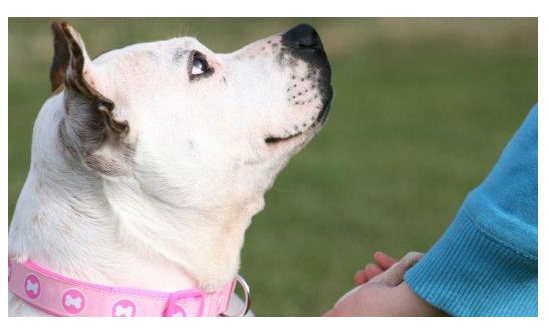Onekind Charity
Registered Charity Number:
SC041299
Edinburgh
OneKind supports automatic bans for cruelty – and a new approach to offender behaviour
OneKind was grateful to the Scottish Sun for asking us to support its campaign for animal abuse convictions to attract an automatic life ban on owning animals.
The call comes in the wake of a horrific cruelty case currently under investigation by the Scottish SPCA. A female Staffordshire bull terrier was discovered dead on Friday 15 May, having been weighted down and thrown into a pond in Newmains, Lanarkshire. A post-mortem revealed she had been struck on the head, neck and body but may have been alive when she entered the water.
The issue highlighted by the Sun is the shortage of long term disqualification orders being issued by Scottish courts to prevent people convicted of cruelty from ever owning animals again. Our animal welfare legislation – the Animal Health and Welfare (Scotland) Act 2006 – requires courts to consider disqualification on conviction for the most serious cruelty offences, and animal welfare charities such as OneKind and the Scottish SPA repeatedly call for these orders to be used more frequently. But in practice, they are issued in a minority of cases.
There are practical limitations to the penalties that we can expect to see in animal cruelty cases. Courts are discouraged from issuing short prison sentences, which in any case are often affected by discounts for first offences or for pleading guilty, and few offenders have the resources to pay a substantial fine. Cases under the 2006 Act are all subject to summary rather than solemn procedure, and this too limits the severity of the punishment that can be meted out.
This is why the disqualification order is so useful. It is an additional measure that can prevent animals falling into the hands of someone known to be unsuitable to have the privilege of owning them. If the courts used it more often, it would make a real difference. And as we said to the Scottish Sun, someone who is deliberately cruel to animals, as in this case, is unlikely to change in just a few years. So it has to be for life.
But here’s another thought. When someone is convicted of domestic violence, there are two types of domestic violence perpetrator programmes - criminal justice programmes and community based programmes – that take referrals from the courts. When someone is convicted of the most appalling cruelty to animals, wild or domesticated, there is no such programme available to teach humane treatment and bring about a real change in that person’s attitude and behaviour. We pointed this out when we responded to the Scottish review of wildlife crime penalties. And now, looking at this latest terrible cruelty inflicted on man’s best friend, it’s clear that the need for such treatment is very urgent indeed.
While you explore the various charitable opportunities on Charity Choice, take a moment to relax and discover something exciting. Visit Vavada Casino for a thrilling break that adds a bit of excitement to your day.
